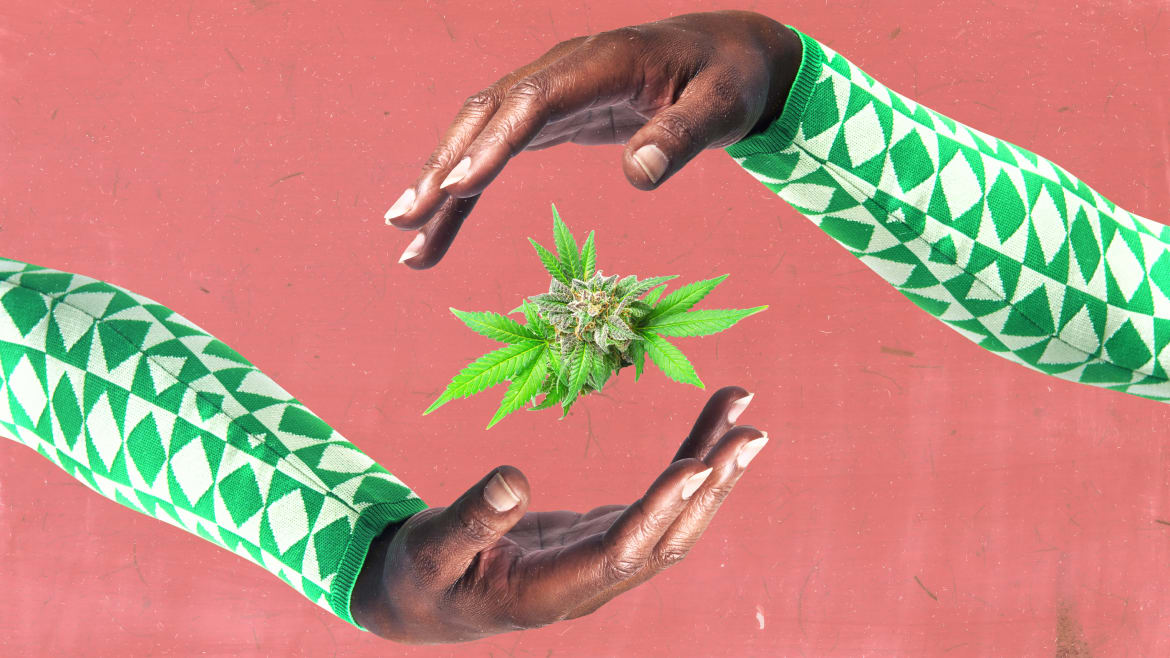Photo Illustration by Thomas Levinson/The Daily Beast/Getty
Louis Armstrong’s soaring trumpet bounced from the walls like star beams reflecting from the moon, his melodies breaking into a million pocket-sized pieces. His reefer smoke curved backstage like the bosom of his white women, inspiring love and fear alike. That fear holds the key to one of America’s most notorious locked doors—a door that, to this day, keeps many men and women of African descent confined in soul-crushing cages in the modern-day iteration of this nation’s original sin.
The reefer madness propaganda used to disseminate fear of cannabis and criminalize its use was largely based on the plant’s association with jazz musicians and their magically non-traditional lifestyle, one that drew envy, applause, and everything in between from the hearts of their illustrious white audiences. Once the fearmongering campaign had been successfully implemented, and weed became intrinsically linked in the minds of America’s masses with crazed Black men and their quintessential psychological fantasy of the latter’s rape of white women, it has taken nearly a century—and undoubtedly thousands, if not millions, of ruined lives—for this nation to begin to end its draconian prohibition on God’s fruit of this Earth.
Even in this moment of transformation, the momentum of the legal cannabis industry is not free of the vile hypocrisy that prevented its development for a hundred years, as the members of that community once represented by Satchmo and his contemporaries have been largely, if not entirely, excluded from participation in this billion-dollar business. Nationally, cannabis companies with Black ownership are less than 4%; in my home of Chicago they have been, up to this point, zero percent.

